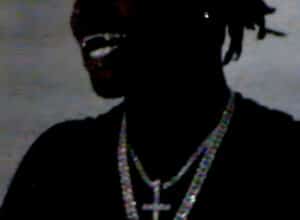Released: 2020
Ken Carson’s song “Yale” isn’t just another track; it’s a flex on multiple levels, from sexual conquests to street credibility. The artist uses a combination of vivid imagery and boastful claims to paint a portrait of his current lifestyle and mindset. Through the lens of Ken Carson, we dive into a world where intellect meets the streets, and status is king.
The opening lines, “Uh, I keep your ho upstairs / When she wanna fuck, I just tell her, ‘Ring the bell'”, introduce us to Carson’s braggadocio about his relationships with women, implying not just control but also a certain level of luxury and disregard for norms. The mention of the girl being from Yale serves as a metaphor for her intelligence, which contrasts sharply with the raw physicality of their relationship. This duality showcases Carson’s ability to navigate and bridge different worlds.
As we move through the lyrics, Carson’s focus shifts from personal exploits to his readiness for conflict, as seen in lines like “If it’s up, then nigga, it’s stuck, don’t come outside, not even for air” and “Got a glocky on my hip, and I’ll blow this bitch just like a ref”. Here, Carson is talking about the ever-present tension and violence that accompanies street life, using the term “glocky” as slang for a Glock pistol. By stating that conflict, once initiated, is irreversible (“If it’s up, then nigga, it’s stuck”), he highlights a no-retreat, no-surrender attitude.
The harsh realities of street life permeate further as Carson coldly dismisses the emotional impact of violence, “Give a fuck ’bout your mama crying, give a fuck ’bout that lil’ bitch shedding tears”. This line is a grim reminder of the desensitization to violence and loss that often accompanies life in dangerous environments. Carson wraps up his narrative by juxtaposing his lifestyle choices against those of the previous generation, seen in “Double cup, ho, I sip lean, know all these old niggas sip beer”. This not only marks a generational shift in habits but also places Carson in a lineage of trendsetters as opposed to followers, as he declares himself a leader among his peers.
In conclusion, “Yale” by Ken Carson, through its gritty realism and unapologetic bravado, offers a window into a lifestyle characterized by contrasts: intellectual and physical, vulnerable and invincible. Carson navigates these contradictions with the confidence of someone who knows his power and is unafraid to use it, inviting listeners into a world where every day is a calculated move in the game of life.






